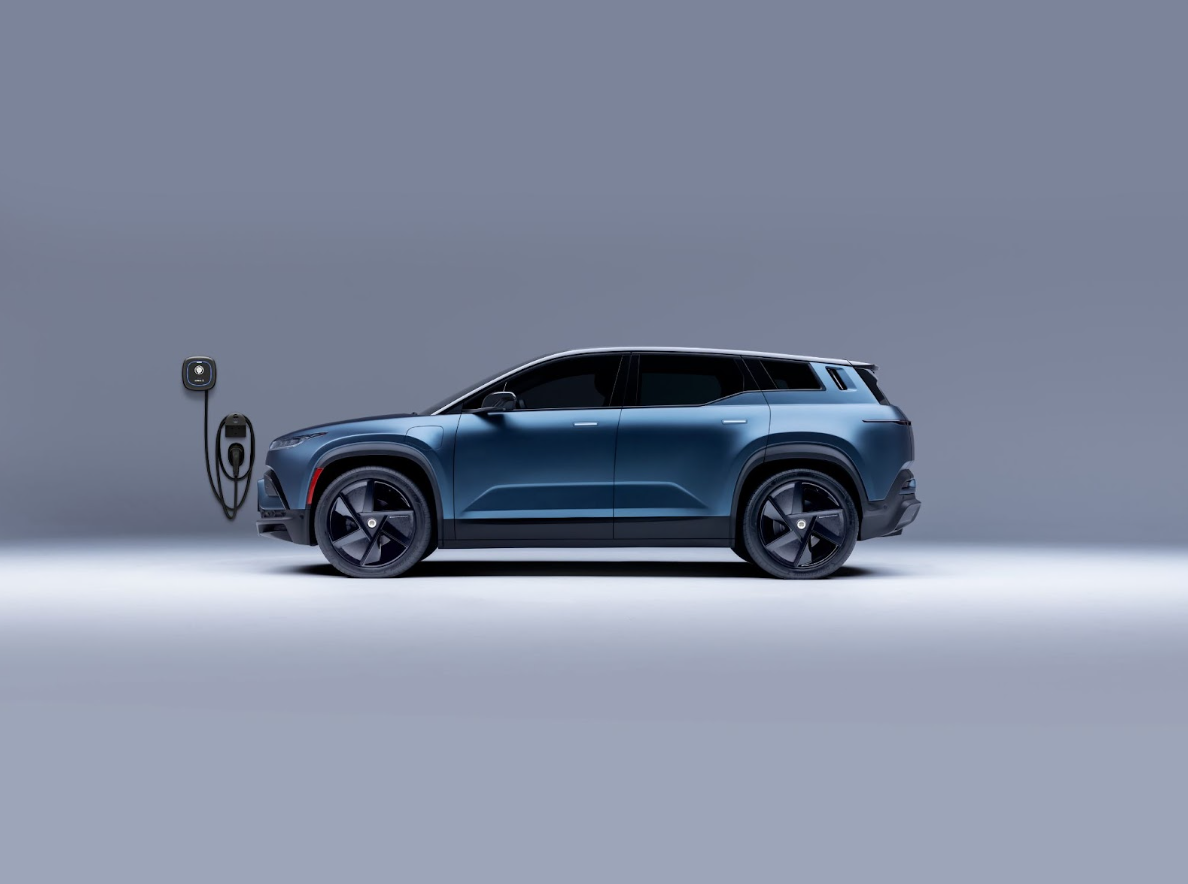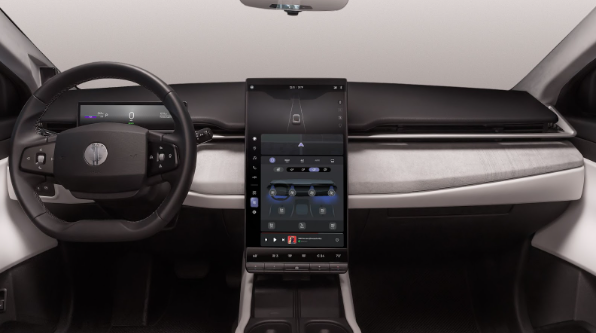The Fisker Ocean comes in various configurations, but our focus here is on the top-of-the-range Extreme model. Priced at £60,880, it's not just a pretty face. Under the bonnet lies a robust 106.5kWh battery, coupled with dual motors that churn out a combined 556bhp and 544 lb-ft of instant torque. The all-wheel-drive system ensures optimal traction, and the vehicle can sprint from 0 to 62mph in a mere 4 seconds.
Come Spring 2024, Fisker plans to introduce an entry-level Sport variant. With a price tag of £35,970, it will feature a 75kWh battery, front-wheel drive, and a respectable 271bhp. While it won't match the Extreme's performance, it aims to offer a more budget-friendly option for potential buyers.
One of the most critical factors for any electric vehicle is its range and efficiency. Fisker doesn't disappoint in this department. According to WLTP figures, the Ocean Extreme can achieve an estimated range of 380 miles with an 85% battery charge. Even after a spirited 230-mile drive, the vehicle still indicated a potential for another 200 miles. This level of efficiency puts the Ocean in a favourable position against established German and Korean rivals.

The Fisker Ocean offers a trio of driving modes to suit various conditions. 'Earth' is the eco-friendly option, focusing on maximising range and efficiency. 'Fun' aims to offer a balanced driving experience, blending dynamic performance with energy conservation. Lastly, 'Hyper' is for those who want an adrenaline-pumping ride, with rapid throttle response and maximised torque delivery. Each mode alters the vehicle's behaviour, allowing drivers to customise their experience based on their needs and the driving environment.
While the Ocean offers an engaging driving experience, it's not without its shortcomings. The vehicle's weight, especially when compared to lighter competitors like the Tesla Model Y, is noticeable. Acceleration between 60 and 100 mph feels less dynamic than one would expect from a vehicle with such impressive specs. Initial impressions of the ride quality were less than stellar, with a somewhat stiff and noisy experience. However, the introduction of new tyres did provide some relief, indicating that Fisker is attentive to feedback and willing to make improvements.
Step inside the Fisker Ocean, and you'll find an interior that blends functionality with modern aesthetics. The cabin features synthetic materials, ergonomically designed seats, and dual high-resolution monitors that serve as the central hub for the vehicle's infotainment system. While the system is functional, it lacks integration with popular platforms, leaving room for improvement. The Intelligent Pilot system, which includes various driver assistance tools, is a nod towards autonomous driving capabilities but requires further real-world evaluation to determine its effectiveness.

The electric SUV market is a battlefield, with heavyweights like the Tesla Model Y and BMW i4 M50 xDrive dominating the scene. The Ocean, with its compelling mix of features, performance, and competitive pricing, aims to carve out its niche. While it excels in certain areas like efficiency, it faces challenges in ride comfort, driver appeal, and technology integration. However, its pricing strategy makes it a strong contender, especially when compared to pricier options like the Mercedes EQA or Audi Q4 e-Tron.
Henrik Fisker, once celebrated for his design contributions to iconic cars like the BMW Z8 and Aston DB9, has transitioned into a full-fledged industrialist. His latest creation, the Ocean, is a testament to this evolution. Priced around £50,000 for the 533bhp Ultra version, the vehicle offers a compelling blend of performance, efficiency, and features. However, it's not without its flaws, and there are areas that could benefit from further refinement.
In summary, the Fisker Ocean is a promising newcomer in the electric SUV market. It brings a fresh perspective and challenges the established norms, but it also shows that there's room for improvement. As the brand matures and listens to customer feedback, we can expect the Ocean to evolve into an even more compelling option for eco-conscious drivers.
Image credit: https://www.fiskerinc.com/en-gb/ocean